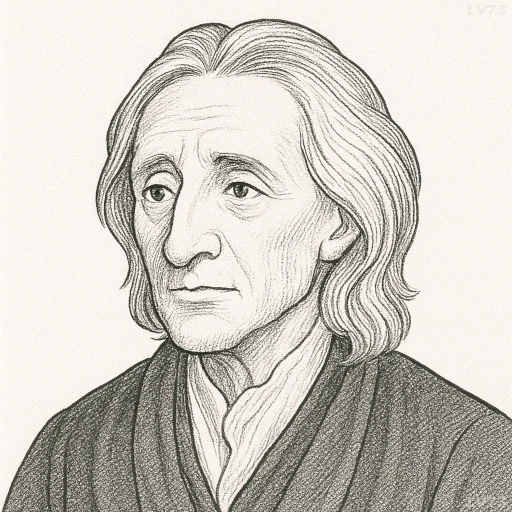“Where there is no property there is no injustice.”

- August 29, 1632 – October 28, 1704
- Born in England (UK)
- Philosopher and political thinker
table of contents
Quote
“Where there is no property there is no injustice.”
Explanation
In this quote, John Locke suggests that injustice arises in a society only when individuals possess property that can be unjustly taken or violated. For Locke, the concept of property is central to the idea of justice. He argues that property—in its broadest sense, including not just material goods but also life and liberty—is something that individuals have a right to protect. Therefore, injustice occurs when someone’s property rights are violated or disrespected. In a society where there is no property to claim, the notion of justice becomes irrelevant, because there is nothing to be taken or harmed. Locke’s view ties justice directly to the protection of property, asserting that one’s rights are best preserved when property is safeguarded.
Locke’s philosophy emerged in a time when the ownership of land and material wealth were central to political and social hierarchies. The notion that property is the foundation of justice was revolutionary, particularly as it challenged feudal and monarchical systems where power and wealth were concentrated in the hands of a few. Locke argued that in the natural state, individuals have the right to acquire, own, and dispose of property as they see fit, and that the role of government is to ensure the protection of these rights. Therefore, injustice in society is primarily a matter of how property is distributed and protected.
In modern times, Locke’s view on property and justice remains relevant, particularly in discussions about economic inequality, property rights, and social justice. Contemporary debates about land ownership, intellectual property, and corporate responsibility often center on the notion of justice as it pertains to the fairness of how property is distributed and protected. Locke’s assertion that injustice occurs when property is violated informs modern legal systems that aim to ensure that everyone’s property rights are respected. However, the idea that property is essential to justice also leads to debates about the distribution of wealth and resources, particularly in societies with significant economic disparities. Locke’s quote serves as a foundation for the right to own property but also highlights the need for equitable systems that ensure justice for all individuals.
Would you like to share your impressions or related stories about this quote in the comments section?

